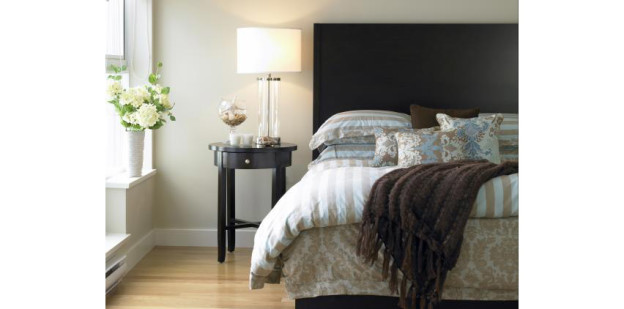

August 18, 2019 | Categories: Health, Home
Here’s what to do to prevent indoor allergies and allergist-approved cleaning habits to ensure allergy symptoms aren’t exacerbated.
Suffer from indoor allergies? You can breathe a little easier knowing that there are steps you can take to feel better fast—plus some simple cleaning habits to ensure allergy symptoms aren’t exacerbated. To help you figure out which rooms to tackle and how to clean them for optimal allergy relief, we talked to allergists Travis A. Miller, M.D., Medical Director, The Allergy Station at Sacramento Ear, Nose, and Throat in Roseville, Calif., and John Saryan, M.D., Chairman of Allergy and Immunology at Lahey Hospital and Medical Center in Burlington, Mass.
If you make changes to just one room in your home to ease allergies, the bedroom should be it. Keep your bedroom windows closed at all times, suggests Saryan. While a fresh breeze can be enjoyable, it’s important to keep pollen from blowing into the bedroom from an open window—it can get into your bedding and you’ll breathe it in while you sleep. If you need to cool off, turn on the A/C. It’s best to remove rugs from this room too, as they can act as a reservoir for pet dander and dust mites. Saryan also suggests minimizing fabrics, drapery, extra pillows, excess clutter, and anything that can collect dust or pet dander. “You want the bedroom to be as sparse as possible,” Saryan says. If you have pet allergies, don’t let your dog or cat on the bed, or—even better—don’t let them in your bedroom at all.
“If you’re allergic to dust mites, use a woven, microfiber casing for the mattress and bed pillows to prevent the dust mites from moving through the mattress to your bedding while you sleep,” says Saryan. Washing sheets and pillowcases in hot water (130° F) weekly and the remaining bedding (duvet cover, blankets, and comforter) every other week can help to kill those dust mites. “Patients who practice these minimizing and cleaning tips can feel allergy symptom relief in a few days,” Saryan says. Could bedroom clutter be the reason you can’t sleep?
After a shower, let the fan run for three to five minutes to reduce moisture. Wipe damp surfaces dry and clean the bathroom to remove mold around the tub and shower. Always ventilate the bathroom after cleaning so the fumes air out. If there’s mold on the walls, that’s a sign that there could be a leak, so enlist a professional to help take care of the problem.
Hard flooring in the home will have some benefit for indoor allergy sufferers because it’s easier to collect pet dander and reduce dust,” says Miller. If you have carpet, though, vacuum it a few times a week, especially if you have pets. Once a season, move furniture around so you can vacuum under it, suggests Miller. And wipe down hard surfaces and shelves often to reduce dust. The jury still seems to be out on whether individual-room HEPA filter devices are beneficial for allergy sufferers. While they may help with cat dander, they’re not as good for dust mites because those are heavier particles that settle quickly. “Allergists often recommend the home be kept below 30 percent humidity and often discourage using a humidifier since higher humidity levels allow mold, bacteria, and dust mites to accumulate,” says Miller.
You probably wipe down your kitchen before and after cooking, but you might be forgetting to clean the area under the sink, which can become cluttered and harbor mold (along with cockroach feces and mouse urine, which are also indoor allergens). Cleaning this area once a season will help reduce allergen exposure, says Miller. He warns against using volatile cleaners, though, as they can irritate your airways. Let the room ventilate for about 30 minutes after cleaning to allow it to dry completely.
Sure, we all try to have organized, uncluttered closets. But if yours is stuffed with clothes you’re not wearing, dusty boxes, random belongings, shoes that have tracked in pollen, and a rug that’s collecting dust, it’s important to take control—and to do it safely. Miller suggests keeping floors bare to minimize dust collection and to wear a dust mask for protection while tackling the task. And try to clean or launder items as best you can before storing them in the closet in the future. Learn more about how too much clutter affects your health and concentration levels.
Even if you have a finished basement or attic, be aware that these rooms need to be cleaned frequently and are prone to mold growth due to leaks in the foundation or roof. Saryan advises against sleeping in either of these rooms. If you plan to address a basement leak or water damage situation on your own in an area without proper ventilation, wear a dust mask. Even better, both allergists suggest calling a professional to safely deal with a mold problem that could be dangerous to your health.
Safety Tip: Wear a dust mask any time you tackle large scale cleaning projects. Asthmatics should always wear a mask when cleaning
Read the full article on RealSimple.com.
Leave a Reply